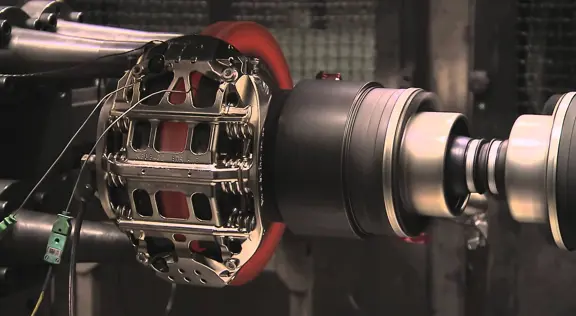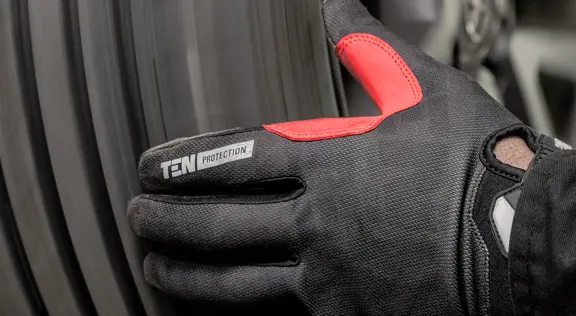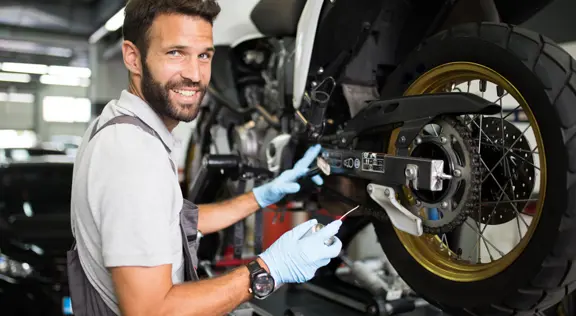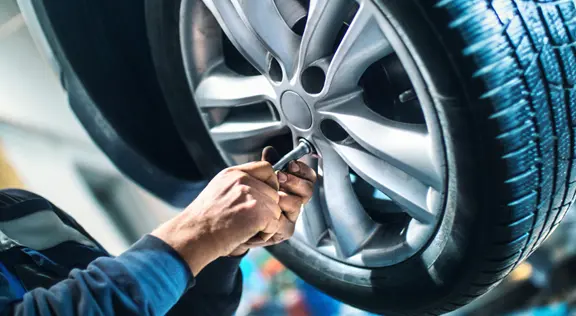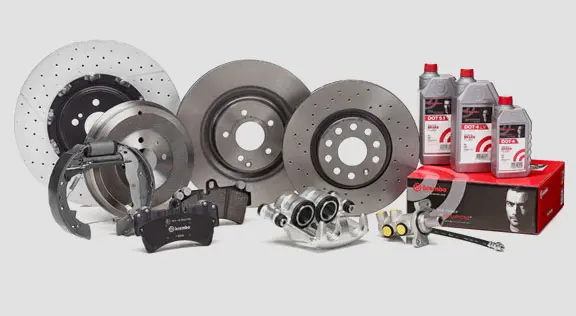
Brake rotors with vane vs pillar ventilation: the differences
Why use vented rotors?
The thermal stresses in a brake rotor are extremely intensive; in fact, all the energy of the vehicle is transformed into heat, generated in the disc/pad interface and the rise in local temperature is considerable. Depending on the varying heat conductivity of the rotor cast iron and of the brake pad friction material, in the majority of cases, more than 80% of the heat generated is absorbed by the brake rotor.
So cooling the brake rotor is vital for the braking system to function properly. This occurs through air circulation due to the vehicle motion, but above all to the movement of the air induced by the revolution of the rotor itself.
Depending on the quantity of heat to be dissipated, appropriate solutions need to be implemented to guarantee correct brake operation. The solution that’s generally implemented to increase the heat exchange surface with the air is the use of vented rotors, with an appropriate width of the ventilation channel and increasingly efficient ventilation shapes. These ensure improved cooling compared to solid rotors, which are therefore used mostly on the rear axle of medium-sized cars or on the front axle of compact and city cars.
Depending on the quantity of heat to be dissipated, appropriate solutions need to be implemented to guarantee correct brake operation. The solution that’s generally implemented to increase the heat exchange surface with the air is the use of vented rotors, with an appropriate width of the ventilation channel and increasingly efficient ventilation shapes. These ensure improved cooling compared to solid rotors, which are therefore used mostly on the rear axle of medium-sized cars or on the front axle of compact and city cars.
A few years ago, Brembo patented its PVT (Pillar Venting Technology) which, thanks to the shape and distribution of the pillars, manages to create air circulation inside the ventilation chamber, which allows for greater heat removal; what’s more, the position of the pillars is arranged in such a way as to create a good barrier against the formation and propagation of cracks.
Since the Nineties, this type of technology has undergone constant developments, improving in particular the performance in its application to heavy vehicles and vehicles subjected to significant thermal stresses.
The latest news from Brembo is the PVT plus patent dedicated to trucks and top-performance cars, which further improves performance during braking, incorporating all the technologies developed previously.
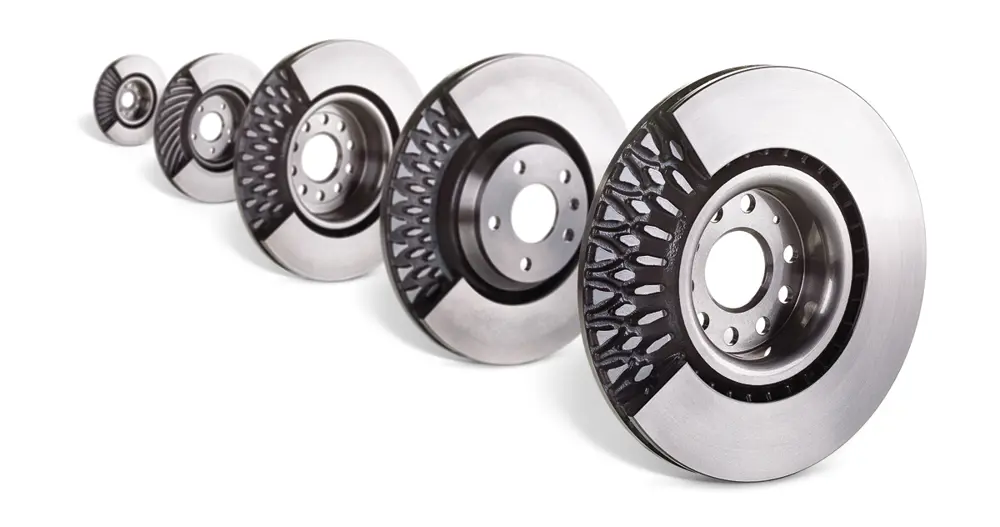
What improvements does PVT ventilation offer compared to conventional ventilation?
The high temperatures that are developed during braking lead to disc wear over time, which translates to reduced braking performance and excessive brake pad consumption.
Thanks to an enhanced cooling system, PVT ventilation increases resistance to thermal cracks by more than 40%, consequently reducing wear and prolonging the average life of brake rotors and pads.
Brembo has continued to improve the quality of its PVT vented rotors over time, implementing the T Pillar and Star Pillar patents for the truck market.
The T Pillar solution was devised to avoid particles infiltrating the ventilation chamber of truck brake rotors, while the Star Pillar solution further enhances resistance to thermal cracks.
The T Pillar solution was devised to avoid particles infiltrating the ventilation chamber of truck brake rotors, while the Star Pillar solution further enhances resistance to thermal cracks.
Thanks also to the know-how acquired during the development of these patents, it was possible to create the PVT Plus system dedicated to the truck market, as well as to the automotive market, in the premium saloon and high-performance car segments.
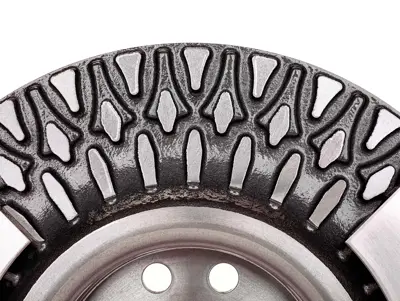
What does the PVT Plus solution entail?
The PVT Plus ventilation solution further improves ventilation compared to previous systems, guaranteeing a further increase in durability of brake pads and rotors.
The special cross shape of the ventilation pillars, and their layout, provides 30% more resistance to thermal cracking, while also offering significant weight reduction of the rotor itself, by up to 10%.
This means several advantages, not just during braking, but also on the overall performance of the vehicle. Indeed, reduced weight means lower consumption levels, fewer CO2 emissions and improved road handling.
What does this mean in terms of driving safety?
To guarantee superior safety performance levels in every braking system, the new PVT Plus ventilation system envisages different geometries for each brake rotor, designed specifically with the target vehicle’s specifications in mind.
What about support and maintenance?
In the case of brake rotors with curved vanes and directed ventilation, where one rotor is envisaged for the right wheel and another for the left wheel, the use of the PVT Plus solution allows both rotors to be replaced with a single part number which, considering the superior performance levels, guarantees equal if not better performance than brake rotors with directed vanes. This means greater ease of assembly and spare parts management.
Is there anything else you want to ask?
Contact the Brembo technical support team. Our technicians will get back to you as soon as possible!

